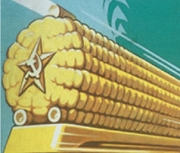(Thread IKs:
fart simpson)
|
In addition it's in China's favor to juice or influence these numbers so they can continue to get classified as a "developing nation" and bypass a lot of regulatory statutes
|
|
|
|

|
| # ? May 29, 2024 16:25 |
|
stephenthinkpad posted:GDP has a measurement standard only (kind of) work on sufficiently capitalist economies. All the other non capitalist models of economy have not monetized most of their national and nature resources, therefore their "GDP numbers" are undervalued. Even inside ASEAN countries right now, some of the Indochina countries have not monetized enough of their resources. If GDP is undervalued in insufficiently capitalist economies, doesn't that make India even worse in comparison to the USSR? Even taking non-GDP figures in terms of life expectancy, job security, housing, wealth inequality the USSR was way better at delivering that than Russia or India even after 3 decades of liberalization.
|
|
|
|
Dreddout posted:the decline of the soviet's economy trends neatly with the increasing liberal reforms of said economy. obviously china proves this is not necessarily the case but those two states operated in very different geopolitical environments
|
|
|
|
mila kunis posted:If GDP is undervalued in insufficiently capitalist economies, doesn't that make India even worse in comparison to the USSR? On the one hand, yes, India has a tons of informal economy they have not added up; on the other hand, Modi's BJP has done alot of tricks to inflated their GDP number in the last few years to "beat China". See one of the articles here. This is one of the reasons why India economy fared the Corona crisis the worst out of all major countries. Modi has made multiple economy related bad decisions since demonetisation in 2016. We will need a whole post just for that. edit: wait you are talking about the old India economy? Before the 90s, India had 5-year-planned economy. It was notorious known as the "licensed raj". It had (and still has) a lot of weird laws that limit the grow of companies. I do not know if it was more or less undervalued compared to the Soviet economy. stephenthinkpad has issued a correction as of 22:34 on Nov 19, 2020 |
|
|
|
stephenthinkpad posted:This piece of news is for the CarrierChat goons, it flew under the radar a few days ago quote:“Shortly after that, an American military attaché in Geneva complained [to us] and said it would lead to severe consequences if the missiles hit an American aircraft carrier." lol
|
|
|
|
stephenthinkpad posted:On the one hand, yes, India has a tons of informal economy they have not added up; on the other hand, Modi's BJP has done alot of tricks to inflated their GDP number in the last few years to "beat China". See one of the articles here. I am familiar with both the old and new indian economies. I am saying the liberalization of the Indian economy does not compare favourably with the soviet model.
|
|
|
|
https://twitter.com/EricTopol/status/1329183603448680448 11 million people tested in 5 days if im reading that right. drat
|
|
|
|
mila kunis posted:https://twitter.com/EricTopol/status/1329183603448680448 doesn’t that first require a lockdown to burn out active cases? like even if the US could dream about having that kind of infrastructure good to go, you’d need to get the cases way down before it could do its job
|
|
|
|
indigi posted:doesn’t that first require a lockdown to burn out active cases? like even if the US could dream about having that kind of infrastructure good to go, you’d need to get the cases way down before it could do its job You can do mass testing without relative fear of people being infected. I think the US could probably do it if made a serious investment and had cooperation from the public, but yeah, that's fantasy. As far as liberalization, you need to start talking about trade first. The big issue for the Soviets is that for much of their history they were attempting to export to either agriculture or energy (among other categories-but those were the two big ones) and was often at the whims of international commodity prices. Beyond insane levels of privatization, the issue for the late Soviet Union and 1990s-era Russia is that oil prices absolutely tanked. India's experience has a bit more of a mixed bag with both high and relatively low periods of growth as bubbles form and then deflate. Some of this is arguably do to a relative lack of state investment in infrastructure to retain the gains of bubbles. If you put a gun to my head, I do have to say as an economy reaches a certain level of development, some form of liberalization is going to need to be necessary since there are field that the state is going to have a lot of difficulty getting right especially consumer goods, retail, and service. It isn't that the Soviet Union didn't have those fields in its economy, but it was generally far more mixed than the Soviet experience with heavy industrialization. The issue is the what capitalism brings with it bubbles, inequality, and eventually oligarchs. Gorbachev had allowed some liberalization on the edges of the Soviet economy, but left the industrial sector alone and focused on building Soviet reserves, it would have worked out a lot better. -------------------------------- As far as the PRC goes, there is plenty of room for criticism and that liberalization went to far in most cases, especially real estate. However, I do think Tencent/Alibaba exist in the first place is that they simply bring in a lot of revenue from outside the country and while private entities are also a conduit for significant amounts of capital into China. Tecent buying Riot/a chunk of Epic/Grinding Gears....makes a lot of sense, they are all dedicated income sources that brings money into the country. The problem is when those companies start to not play nice.
|
|
|
|
mila kunis posted:If GDP is undervalued in insufficiently capitalist economies, doesn't that make India even worse in comparison to the USSR? One of the things that really shocked me when I first starting reading leftist literature is that in the neo-liberal era alot of third world countries became poorer. Like I was hardwired to believe that progress was inevitable with the course of time, and it was shattered by Chomsky.
|
|
|
|
Crowsbeak posted:It has a large part to do with the fact gdp going to the military did not fall below fifteen percent for a twenty three year period. Which lead to resources that could have been improving people’s lives being wasted. Followed by Gorbachev insane “reforms”. All the pre-Gorby reforms never seriously changed how the system worked (not to mention a bunch were rescinded after a few years, like the sovnarkhozy after Khrushchev's ouster and the Liberman-Kosygin reforms in the early 70s.)
|
|
|
|
Enver Zogha posted:Also the "increasing liberal reforms of said economy" were a response to the problems inherited from the Stalin era, which became more glaring as Soviet economists moved in the 50s and 60s from relatively simple problems like "where to construct steel factory #2932229" to more complex problems like "how to increase the efficiency of existing steel factories" and "how to compete with developed capitalist countries in terms of consumer goods and housing." I would say honestly that core heavy industries probably shouldn't have been really touched in the first place since the Stalin-era system, while it had its drawbacks,was a internally consistent system and attempting to seriously tinker with it on an internal level was never really going to work. Also, the Soviets really didn't do that poorly in regards to housing compared to the issues they were facing and I actually don't think liberalizing housing would have been an improvement for the average Soviet citizen. If liberalization happened, it probably needed to occur in non-core industries (such as consumer goods and light industry) where the Soviets were already under-investing and they could pool in latent capital that already existed among the population (which existed btw) and have utilize it to address short-comings the state had a hard time getting at (women's fashion for example). Ardennes has issued a correction as of 01:49 on Nov 20, 2020 |
|
|
|
Ardennes posted:Also, the Soviets really didn't do that poorly in regards to housing compared to the issues they were facing From the standpoint of the USSR claiming it had successfully built socialism and was now embarking on the road of communist construction, housing remained an embarrassing problem even if major strides had obviously been made since the 1920s-30s and even if, objectively speaking, "the Soviets really didn't do that poorly." How the Soviet economy "should" have been reformed is another matter, I just take issue with the idea that the Soviet economy's problems pre-Gorby were caused by "liberal reforms." As an aside, this was a bunch of pages ago but: Chomskyan posted:I finished reading Red Star Over China which i found incredibly interesting. I feel like I understand something about why the communists won the civil war. That said, can anyone recommend a more recent and complete account of the Chinese communist revolution? Enver Zogha has issued a correction as of 02:45 on Nov 20, 2020 |
|
|
|
Enver Zogha posted:There were regular complaints in the Soviet press by citizens about shoddy housing quality, long waiting times to receive an apartment, etc. Considering the Second World War occurred, I disagree. If the Soviets have left reconstruction up to the market it would have been a loving disaster that would have left most of the population living in coal heated favelas. I mean at a certain point you have to accept the Soviets until the 1970s were in an emergency situation. Btw I have lived in various eras of Soviet housing and for the most part it is fine, it often just came down to how vast they could build it. Also liberal reforms were the issue itself, they just never went anywhere because they honestly would at best do the same job as the current system in a different way. They could have reformed in a different way that may have been more useful but they didn’t. Ardennes has issued a correction as of 02:57 on Nov 20, 2020 |
|
|
|
Ardennes posted:Considering the Second World War occurred, I disagree. If the Soviets have left reconstruction up to the market it would have been a loving disaster that would have left most of the population living in coal heated favelas. Frankly I would say they could definitely have changed quite a few things in the sixties. And I would argue that Khrushchev having to go military first after he ousts Zhukov did not help.
|
|
|
|
Ardennes posted:Considering the Second World War occurred, I disagree. If the Soviets have left reconstruction up to the market it would have been a loving disaster that would have left most of the population living in coal heated favelas. Obviously there were objective reasons for housing shortages, but when you're telling people 40 years after the Great Patriotic War ended that the Hitlerite invaders are why it will take you eight years to get an apartment, you should be able to understand why that is a problem, even if you think that no market reform could have made things better in-re housing. quote:Also liberal reforms were the issue itself, they just never went anywhere because they honestly would at best do the same job as the current system in a different way. They could have reformed in a different way that may have been more useful but they didn’t. Enver Zogha has issued a correction as of 03:37 on Nov 20, 2020 |
|
|
|
indigi posted:doesn’t that first require a lockdown to burn out active cases? like even if the US could dream about having that kind of infrastructure good to go, you’d need to get the cases way down before it could do its job Correct. You can avoid a full lockdown if your cases are so low that you can do contact tracing on individual cases and only target everyone they've come into contact with for quarantine, and then use mass testing to suss out anyone in the population that might have it that don't know they have it, but you still need near-total mask compliance, you still need to enforce social distancing, and you still need the active case count to be low enough so your contact tracing results aren't just "well, everyone the patient came into contact with probably also has it, gently caress this". Like, if tomorrow every government leader in America had been bestowed with the knowledge and the will to stop COVID, they'd still need to do a lockdown just to stop it from spreading so much.
|
|
|
|
The only other country that outgrew the Soviet Union (from a 1920 starting point) was Japan. Some minor reforms (an income tax to replace the turnover tax, for one) and less military spending to free up engineering expertise were needed in the short-term. Gorbachev was right to pursue nuclear detente but wrong about pretty much everything else.
|
|
|
|
stephenthinkpad posted:GDP has a measurement standard only (kind of) work on sufficiently capitalist economies. All the other non capitalist models of economy have not monetized most of their national and nature resources, therefore their "GDP numbers" are undervalued. Even inside ASEAN countries right now, some of the Indochina countries have not monetized enough of their resources. am i reading this right that you think southeast asia needs to monetize their natural resources more for export?
|
|
|
|
Enver Zogha posted:I wasn't proposing any "liberalizing" measures in regard to housing (nor were Soviets reformers pre-Gorby, as far as I know.) The point is that Soviet reformers could see that the public was increasingly annoyed at how its sacrifices in the 1930s-40s had created a system that seemed distinctly inferior to capitalism in terms of consumer abundance and housing quality, despite CPSU ideologists declaring that the USSR would reach the material prerequisites for communism by 1980 (as was boasted under Khrushchev) or that the USSR was a "developed socialist society" (as was boasted under Brezhnev.) They could also see how glorifying the status quo as the CPSU did had created cynicism. Besides the fact that Soviet leaders should have boasted less, I would say the were fundamental material constraints to what the Soviets needed to accomplish. quote:Obviously there were objective reasons for housing shortages, but when you're telling people 40 years after the Great Patriotic War ended that the Hitlerite invaders are why it will take you eight years to get an apartment, you should be able to understand why that is a problem, even if you think that no market reform could have made things better in-re housing. I could see why many people were annoyed, but let's be honest, under our system a lot of people could wait 7 years to save up to purchase housing and end up with nothing. Also, Kosygin had his chance, the had time and the resources to complete reforms, but what he quickly found out is just it wasn't making a major difference or if they was improved production it was only because of direct subsidies. The take away is that if the Soviet Union wanted to improve production they needed more raw capital in the first place and guess how the PRC solved that dilemma. KaptainKrunk posted:The only other country that outgrew the Soviet Union (from a 1920 starting point) was Japan. Some minor reforms (an income tax to replace the turnover tax, for one) and less military spending to free up engineering expertise were needed in the short-term. Gorbachev was right to pursue nuclear detente but wrong about pretty much everything else. The reason the Soviets were stuck was because the US was rapidly pushing military spending and building missle defense systems at the same time (so presumably the US could conduct a first strike with minimal losses), I guess you could have said the Soviets should have known they were defeated and given up on competing with the West entirely and hoped for the best (it would only allowed them to survive a few more years at best). Ardennes has issued a correction as of 05:04 on Nov 20, 2020 |
|
|
|
Enver Zogha posted:Also the "increasing liberal reforms of said economy" were a response to the problems inherited from the Stalin era, which became more glaring as Soviet economists moved in the 50s and 60s from relatively simple problems like "where to construct steel factory #2932229" to more complex problems like "how to increase the efficiency of existing steel factories" and "how to compete with developed capitalist countries in terms of consumer goods and housing." What were those problems? The only source, a secondary one at that, I've looked at so far mainly blamed Khruschev's misguided attempts at "building communism" and destroying the organizational structure of GOSPLAN because the economists claimed it was impractical and refused to cooperate. So that not only the reforms making the economy unstable, but it wasn't even being maintained as much as it used to be during Stalin's era. Others have also mentioned the consumer industry being constantly sacrificed in favor of military development. So the impression I was given was that post Stalin era created a lot of new economic problems and they were in large part responsible for the eventual collapse.
|
|
|
|
The problems were essentially being under an effective blockade by the richest countries in the world, somewhat ameliorated by oil. The sauds collapsed the price of oil, gorby did his privatizations and market reforms and caused an economic collapse.
|
|
|
|
Lostconfused posted:What were those problems? quote:Others have also mentioned the consumer industry being constantly sacrificed in favor of military development. Saying that post-Stalin reforms "were in large part responsible for the eventual collapse" seems erroneous given that the USSR as of 1985 was neither "collapsing" nor on the verge of collapse. The collapse came after as a consequence of Perestroika and other Gorby-era policies. This doesn't mean there were no new problems created between 1953-1984 (e.g. expenditures on stuff like the Virgin Lands campaign and the Baikal-Amur Mainline are often criticized as wasteful, plus you had the seemingly endless war in Afghanistan and other expensive foreign policy commitments), but the bulk of problems in the economy could be traced to the system as it was built in the 1930s. As for what these problems were, Michael Parenti summarized some of them (not just in regard to the USSR but similar countries) in his book Blackshirts and Reds, pp. 60-61: quote:1. Managers were little inclined to pursue technological paths that might lead to their own obsolescence. Many of them were not competent in the new technologies and should have been replaced. Enver Zogha has issued a correction as of 06:28 on Nov 20, 2020 |
|
|
|
.
sincx has issued a correction as of 05:31 on Mar 23, 2021 |
|
|
|
Literally who cares about Australia I mean cut off all ties and just cease all trade with that dumb place. What would change? On I guess they'll have to buy coal somewhere else, so do that, or stop burning coal, whatever.
|
|
|
|
.
sincx has issued a correction as of 05:31 on Mar 23, 2021 |
|
|
|
seems a bit weird also considering Australia is a part of the free trade pact they just signed?
|
|
|
|
Thank you for clearing that up. My reply is going to lack some details, since this is effectively third hand information now and I didn't track down all original sources. So I can only provide it in broad terms.Enver Zogha posted:Even if "destroying the organizational structure of GOSPLAN" were an accurate summary of the decentralization reforms Khrushchev enacted (e.g. the sovnarkhozy), this was one of the first things reversed after his ouster. I was specifically referring to (using wikipedia for an english language reference) quote:During May 1955 Gosplan was divided into two commissions: the USSR Council of Ministers State Commission for Advanced Planning and the USSR Council of Ministers Economic Commission on Current Planning. These were, respectively, tasked with predictive and immediate planning. The work of the latter was based on the five-year plans delivered by Gosplan, with Gosplan planning 10–15 years ahead. This effectively altered how gosplan functioned. Apparently the long term planning part of gosplan didn't have the political or organizational clout to exert any influence. So even if that part of the organization could identify negative long term economic trends, or find solutions for them, they could not do anything at all to fix them. The criticism I've heard of sovnarkhoz is that the planned economy of USSR was too interdependent and inter connected. Breaking it up into independent economic blocks was just too inefficient due to lack of coordination and synergy. Enver Zogha posted:Saying that post-Stalin reforms "were in large part responsible for the eventual collapse" seems erroneous given that the USSR as of 1985 was neither "collapsing" nor on the verge of collapse. The collapse came after as a consequence of Perestroika and other Gorby-era policies. I don't think those criticisms that Parenti presents are specific to the planned economy under Stalin. There were certainly attempts to address them. Price control was supposed to provide incentive to improve efficiency and create new products. The Stakhanovite movement and pay differential was incentive for the average worker to improve efficiency at their workplace. Gosplan was actively involved in carrying out the five year plans. Which did include making sure that directors weren't hoarding resources and that they were actively trying to meet the quotas set. Those criticisms are valid for any economic system, and the problems related to them were being addressed. The criticism of Khruschev's era is that all of that stopped. The problems might have been inherited from Stalin's era, but they got rid off all the solutions. Price control wasn't being implemented as strictly anymore, product prices weren't reviewed for over a decade. Factory directors were provided with more freedom and more control over capital and investment. Gosplan was less involved in directing the economy and outputs and focused more on just creating plans.
|
|
|
|
I think the grievances list was a response to the new Japan-Australian defense treaty. I actually see Sino-Australia relationship getting better very very slowly after RCEP and Biden winning. As far as China pushing back Australia publicly with multiple import sanctions, it has its logic. China is beating up Australia to show the ASEAN nations, China is not doing it to force the Australians to love China. Australia already has signed up with team US, but there are a lot of free agents out there. stephenthinkpad has issued a correction as of 08:56 on Nov 20, 2020 |
|
|
|
sincx posted:Thoughts on China's list of grievances against Australia? Weird move to make it so public. It's not even Festivus yet. Half of these really are the pettiest complaints. Zhao Lijian's skin must be made of paper to cut this easily.
|
|
|
|
Rudy Giuliani's "noun verb 911" was always "everybody do."
|
|
|
|
Lostconfused posted:This effectively altered how gosplan functioned. Apparently the long term planning part of gosplan didn't have the political or organizational clout to exert any influence. So even if that part of the organization could identify negative long term economic trends, or find solutions for them, they could not do anything at all to fix them. Second, you don't need to wait 10-15 years to notice economic inefficiency at the level of individual enterprises. Knowing that a region will have a particular resource depleted 8 years from now helps in terms of like "don't build an expensive plant here," but it doesn't address the problems within an existing enterprise concerning low productivity, managers wasting large numbers of raw materials, etc. quote:The criticism I've heard of sovnarkhoz is that the planned economy of USSR was too interdependent and inter connected. Breaking it up into independent economic blocks was just too inefficient due to lack of coordination and synergy. Hence why Soviet reformers in the late 80s generally sought the creation of a market economy rather than return to Khrushchev's approach of "hey guys let's abolish certain ministries and create new economic organs in a bid to make the system work better." quote:I don't think those criticisms that Parenti presents are specific to the planned economy under Stalin. quote:There were certainly attempts to address them. Price control was supposed to provide incentive to improve efficiency and create new products. quote:The Stakhanovite movement and pay differential was incentive for the average worker to improve efficiency at their workplace. As for the Stakhanovite movement, while it did encourage workers to look for more efficient means of raising output, it also led to accidents and other damages the state had to incur the cost of. There were also cases where Stakhanovites were physically attacked by their fellow workers due to being seen as tools of management to get workers to work harder (or simply due to envy at the privileges said Stakhanovites enjoyed.) In any case, however useful Stakhanovism was in the 1930s, it wasn't a panacea; I recall reading that by the 1960s Stakhanovism was viewed by officials and workers alike as an archaic method of raising productivity, hence its gradual abandonment. quote:Which did include making sure that directors weren't hoarding resources and that they were actively trying to meet the quotas set. And the problem wasn't so much that quotas weren't being met, it was how they were being met. You had managers wasting so much raw materials that the enterprise took more money than it made, or turned out inordinately heavy products because quotas were in terms of tonnage, or churned out products of such poor quality that consumers didn't want them (but the enterprise was still "meeting the quota" regardless), and so on. quote:Those criticisms are valid for any economic system quote:The criticism of Khruschev's era is that all of that stopped. The problems might have been inherited from Stalin's era, but they got rid off all the solutions. Price control wasn't being implemented as strictly anymore, product prices weren't reviewed for over a decade. Factory directors were provided with more freedom and more control over capital and investment. Gosplan was less involved in directing the economy and outputs and focused more on just creating plans. The Soviet reforms never succeeded in giving managers "more freedom and more control over capital and investment" (check out chapter 3 of Is the Red Flag Flying? by Al Szymanski for example), instead they mostly just tried to give managers material incentives for economizing on raw materials and producing goods people actually wanted to buy. But even that didn't pan out effectively. And to say "Gosplan was less involved in directing the economy and outputs and focused more on just creating plans" doesn't really make sense in an economy where managers had to obey those plans. You also aren't making clear what "directing the economy" means in this context separate from drawing up plans. How else was Gosplan supposed to "direct the economy"? How did it "direct the economy" under Stalin in a way it didn't under his successors? Enver Zogha has issued a correction as of 10:51 on Nov 20, 2020 |
|
|
|
we love our moms! https://www.youtube.com/watch?v=PNLptq2qWQ0
|
|
|
|
You guys realise socialism and neoliberal capitalism aren’t the only two ways to organise an economy right? Traditional corporatism as favoured by monarchies and right wing strongmen involves getting powerful people in all sectors of the economy to bow the knee before the state and cooperate in the interests of the nation. It tends to crush independent labour unions but also capitalists who threaten the sovereign’s interests. It tends to subordinate the interests of stakeholders in different corporate bodies like unions, corporations, professional organisations, local authorities, and the family to a powerful central state while allowing those bodies to operate semi independently as long as they’re not impinging on the state’s power. China was run as a corporatist bureaucracy for most of its existence, and even under Mao it’s not like that went away - the central focus just shifted to party cadres and debates over Marxist theory and practice. The Cultural Revolution was an attempt to roll back the influence of the party bureaucracy through mass enthusiasm and violence. Contemporary China looks a lot more like a corporatist society with socialist theory and hypothetically socialist development goals than it does either a neoliberal capitalist society or an early socialist society.
|
|
|
|
Ardennes posted:Besides the fact that Soviet leaders should have boasted less, I would say the were fundamental material constraints to what the Soviets needed to accomplish.
|
|
|
|
Enver Zogha posted:Hence why Soviet reformers in the late 80s generally sought the creation of a market economy rather than return to Khrushchev's approach of "hey guys let's abolish certain ministries and create new economic organs in a bid to make the system work better." this may be off topic, but given the outcome, are we sure the late 80s Soviet reformers were operating in good faith?
|
|
|
|

|
|
|
|
Enver Zogha posted:
Your post is long and I haven't read all of it since i'm at work but this stood out to me: long ago I worked at an IT services company that did exactly this and hoarded excess labour. People without projects were "benched" and milled around doing make work until a project came along for them. It wasn't unique to them as well, pretty common practice where I was at.
|
|
|
|
indigi posted:this may be off topic, but given the outcome, are we sure the late 80s Soviet reformers were operating in good faith? Yeah I have the same question. The housing problem in the soviet economy looks pretty good in comparison with what we have to deal with in 2020 in the advanced capitalist countries. Full employment also seems pretty good, and most of the problems, while real, don't seem that bad or bad enough to cause any kind of inevitable crash that required marketization to stave it off. From the same Parenti book: quote:"We Didn't Realize What We Had"
|
|
|
|

|
| # ? May 29, 2024 16:25 |
|
Crowsbeak posted:Last part I would say was wrong. America’s middle defense system never worked. Like at that point both owned enough nukes to end civilization several times. The Soviets didn't know it was a hoax, that was the problem.
|
|
|



























